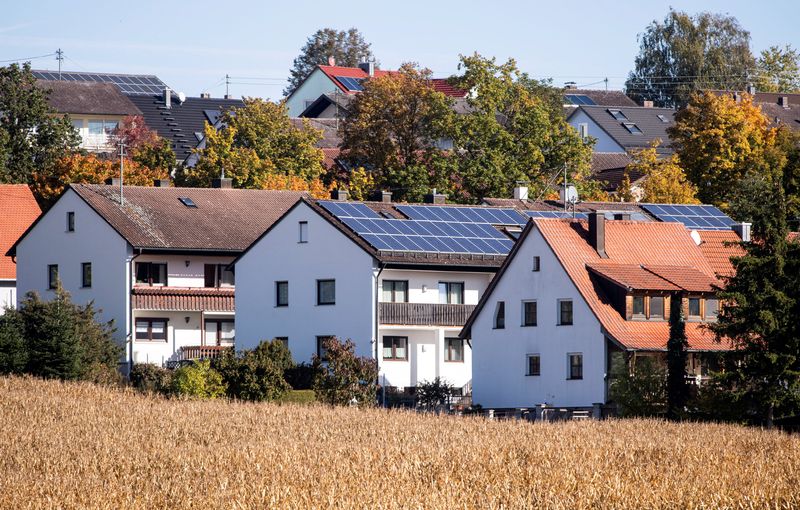By Riham Alkousaa
BERLIN (Reuters) -Germany’s solar industry warned on Tuesday against ending subsidies for new rooftop photovoltaic systems, as proposed by the economy minister, arguing that withdrawing support for small installations would jeopardise the country’s climate goals.
The feed-in subsidies were introduced 25 years ago to aid an expansion of the solar power sector by providing a guaranteed price for renewable energy producers selling their power onto the grid.
They have helped Germany make progress towards its target of covering 80% of its electricity consumption needs with renewable sources by 2030.
But Europe’s biggest economy is struggling to grow following two consecutive years of contraction, and government finances are under pressure as it seeks to boost defence spending, revive industry and renew ageing infrastructure.
Economy Minister Katherina Reiche in an interview with the Augsburger Allgemeine newspaper published on Sunday said that new small rooftop systems, which benefit mainly private households, no longer needed public funding.
“New, small PV systems are already profitable in the market today and don’t require any subsidies,” she said, adding that system operators could also bear some of the costs of grid expansions needed to accommodate growing solar power generation.
However, Carsten Koernig, the head of the German solar industry federation, said the subsidy provided necessary security for the financing banks. Without them, he added, only four out of ten customers would still purchase a solar power system for their homes.
“The subsidy is already clearly paying off for society as a whole,” Koernig told Reuters.
As the government works to meet its renewable power generation target, it will need to leverage rooftop solar capacity by making it more attractive to small producers, Berlin-based renewable energy firm Enpal said.
“What is beyond question is that this requires a reliable regulatory framework,” a spokesperson for the company told Reuters.
Reiche’s proposal to curtail subsidies comes as the solar sector is already facing slowing demand due to rising interest rates, a shifting political climate and general economic uncertainty.
It also contradicts policies agreed between Reiche’s conservative CDU party and its governing partner, the Social Democrats (SPD), when they formed an alliance earlier this year, according to the SPD’s energy policy spokesperson.
“We agreed in the coalition agreement that we want to make private households the actors in their own energy supply,” Nina Scheer told Reuters. “We now need progress in the expansion of storage and not uncertainty.”
(Reporting by Riham Alkousaa; Editing by Joe Bavier)
